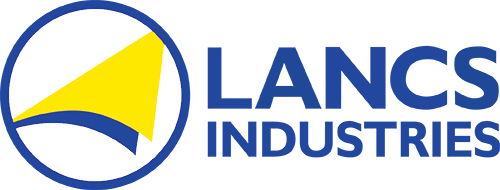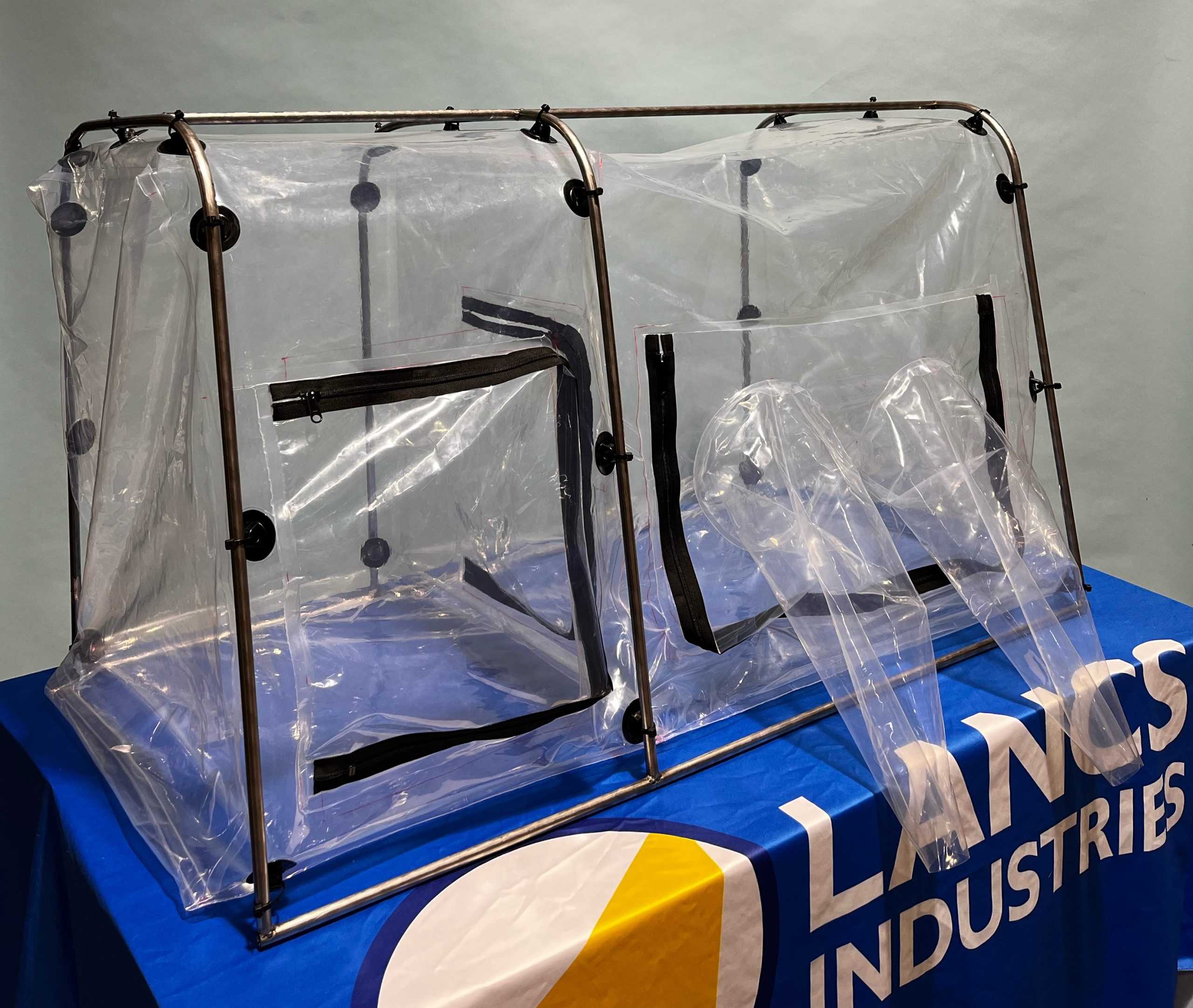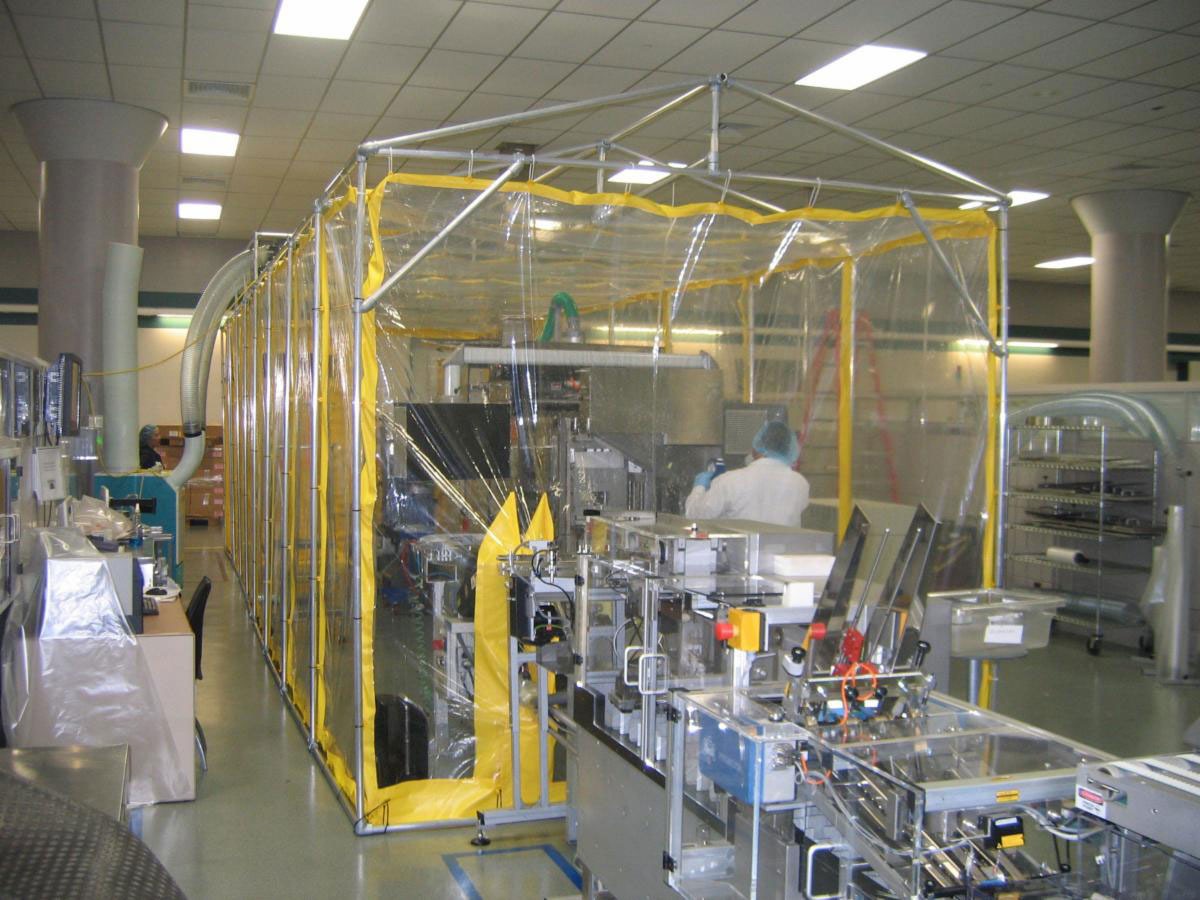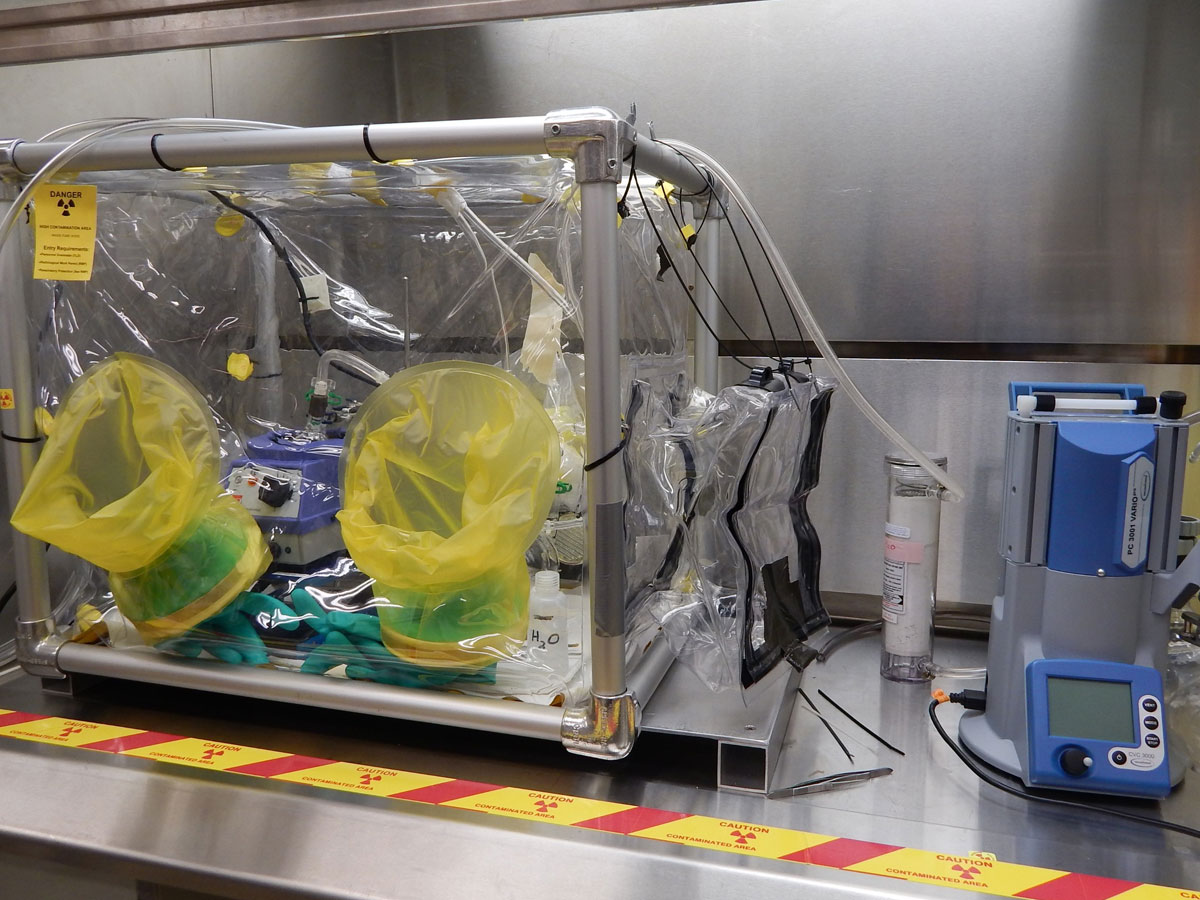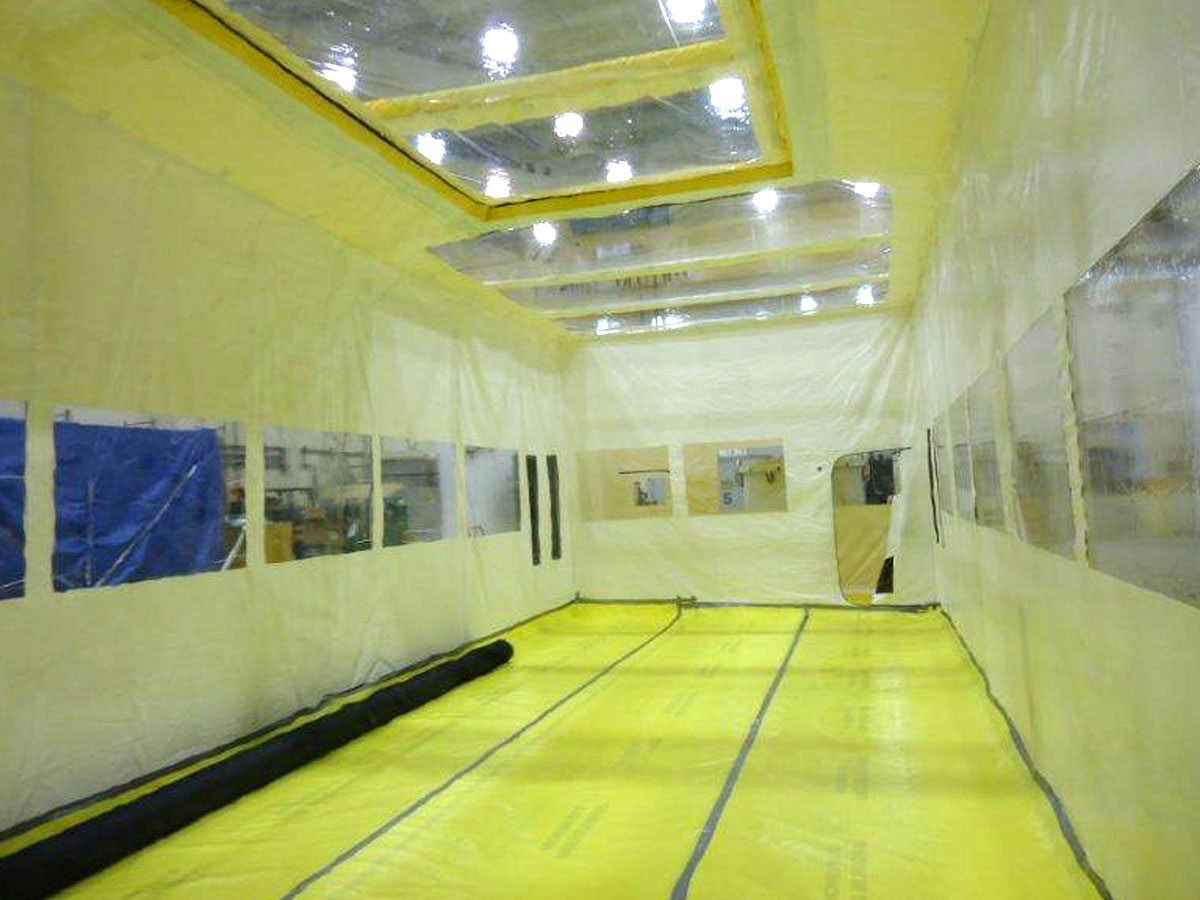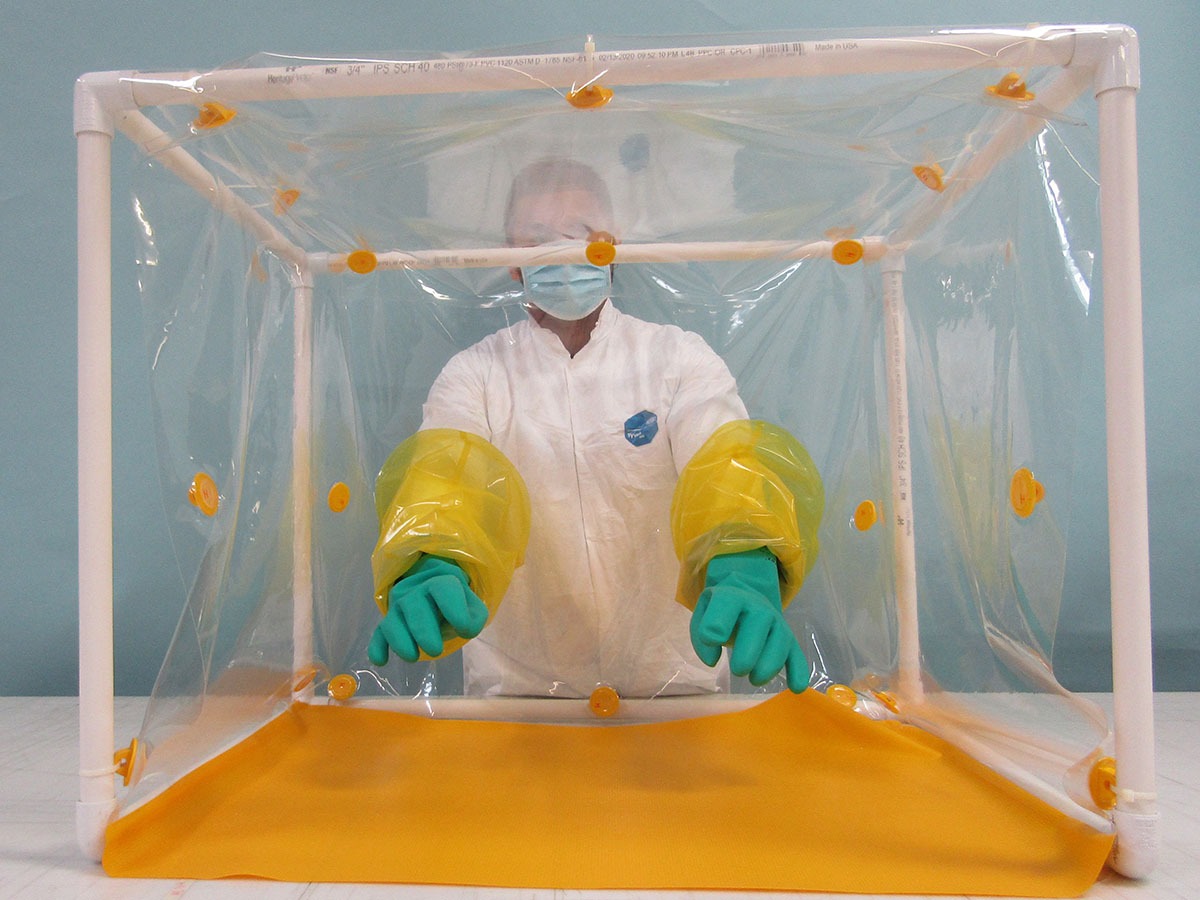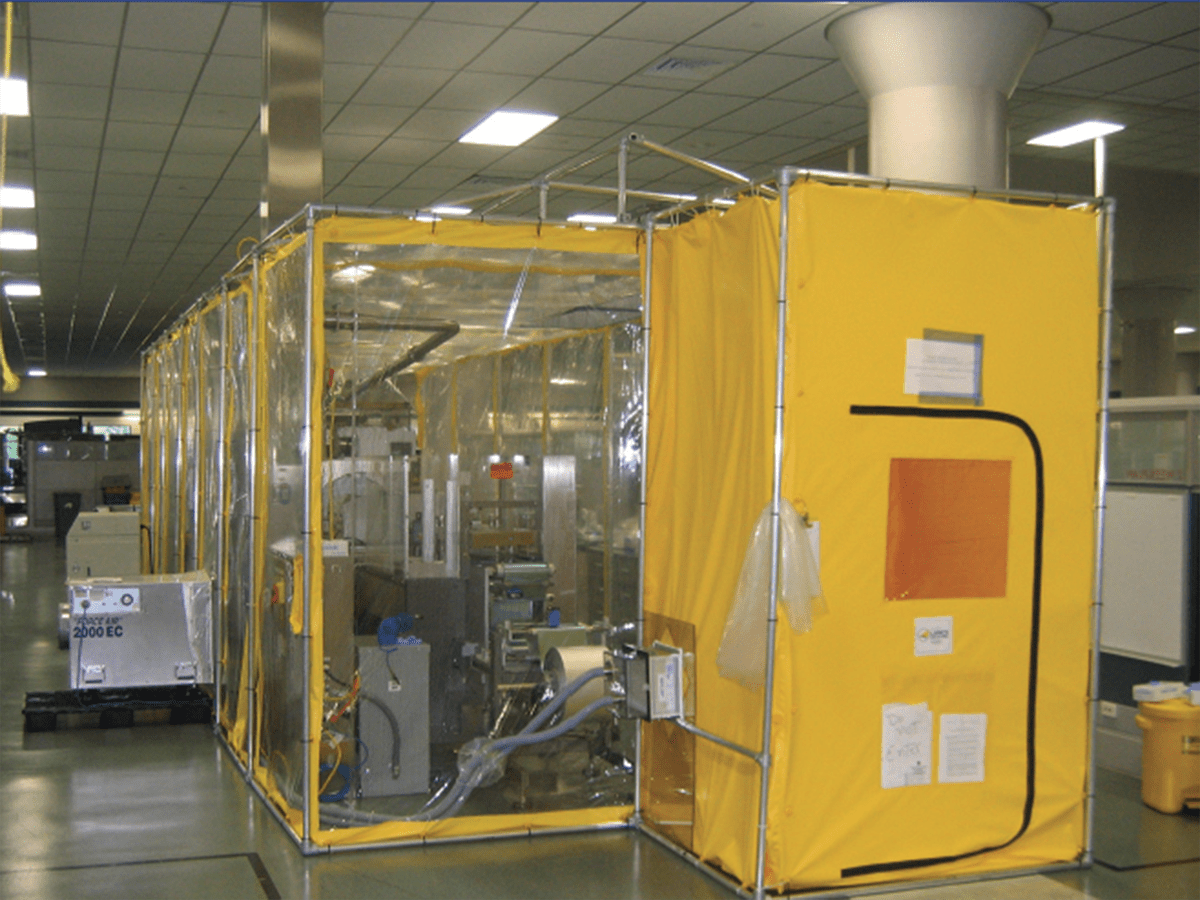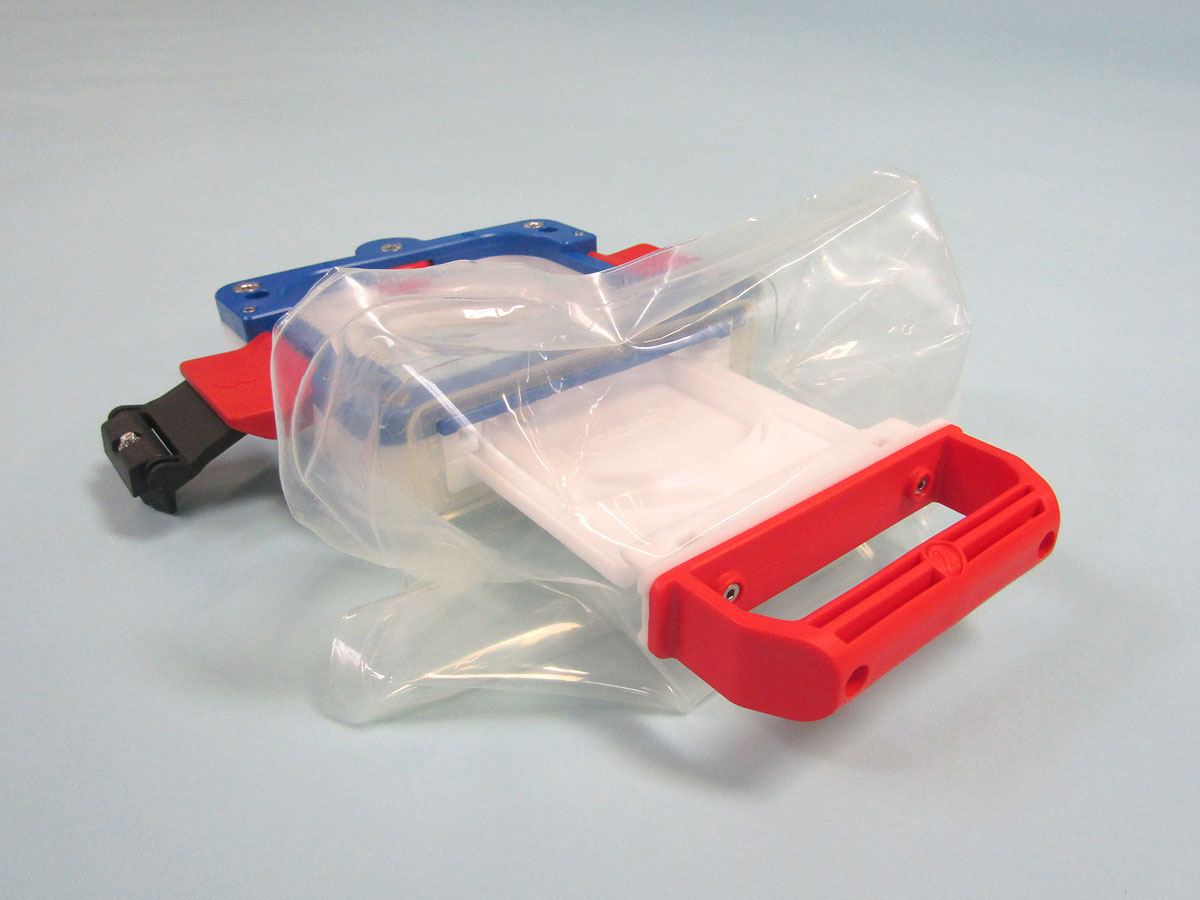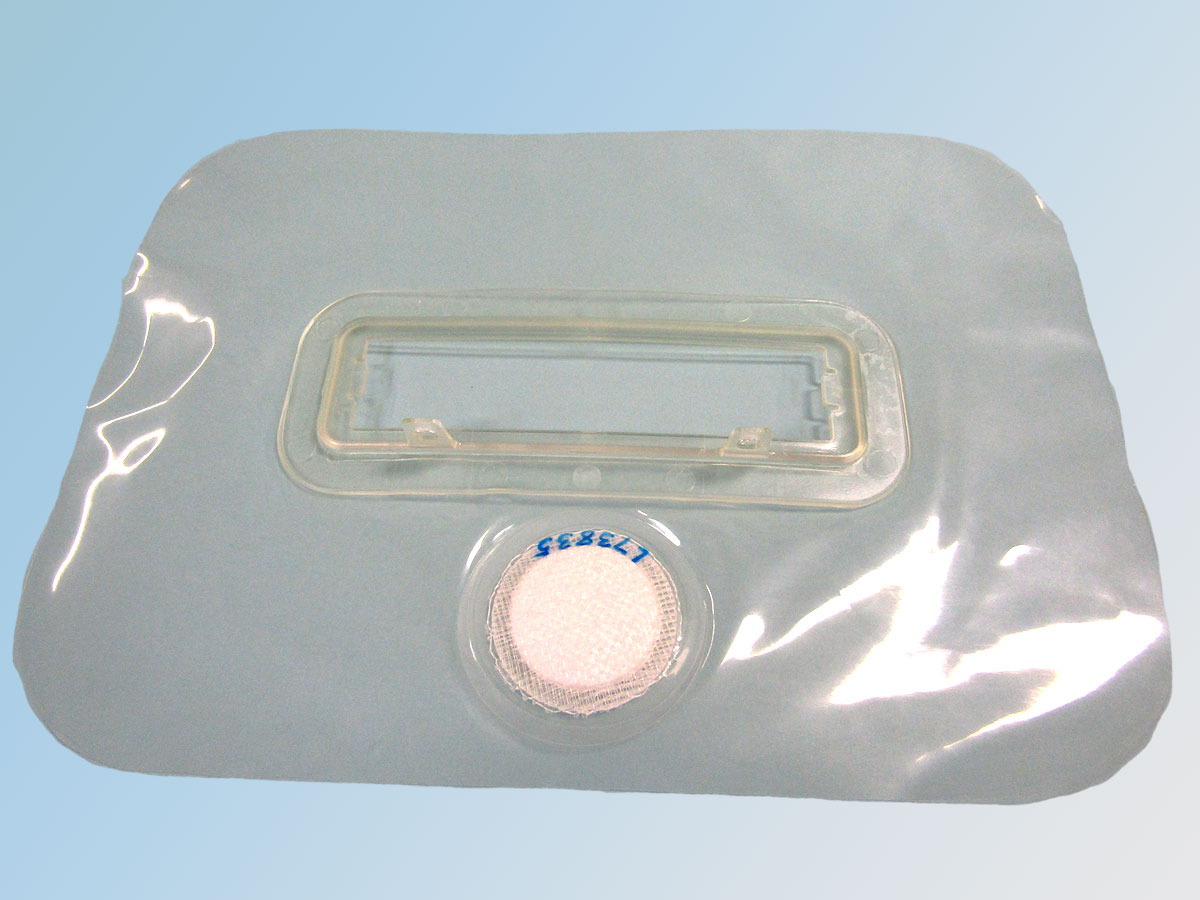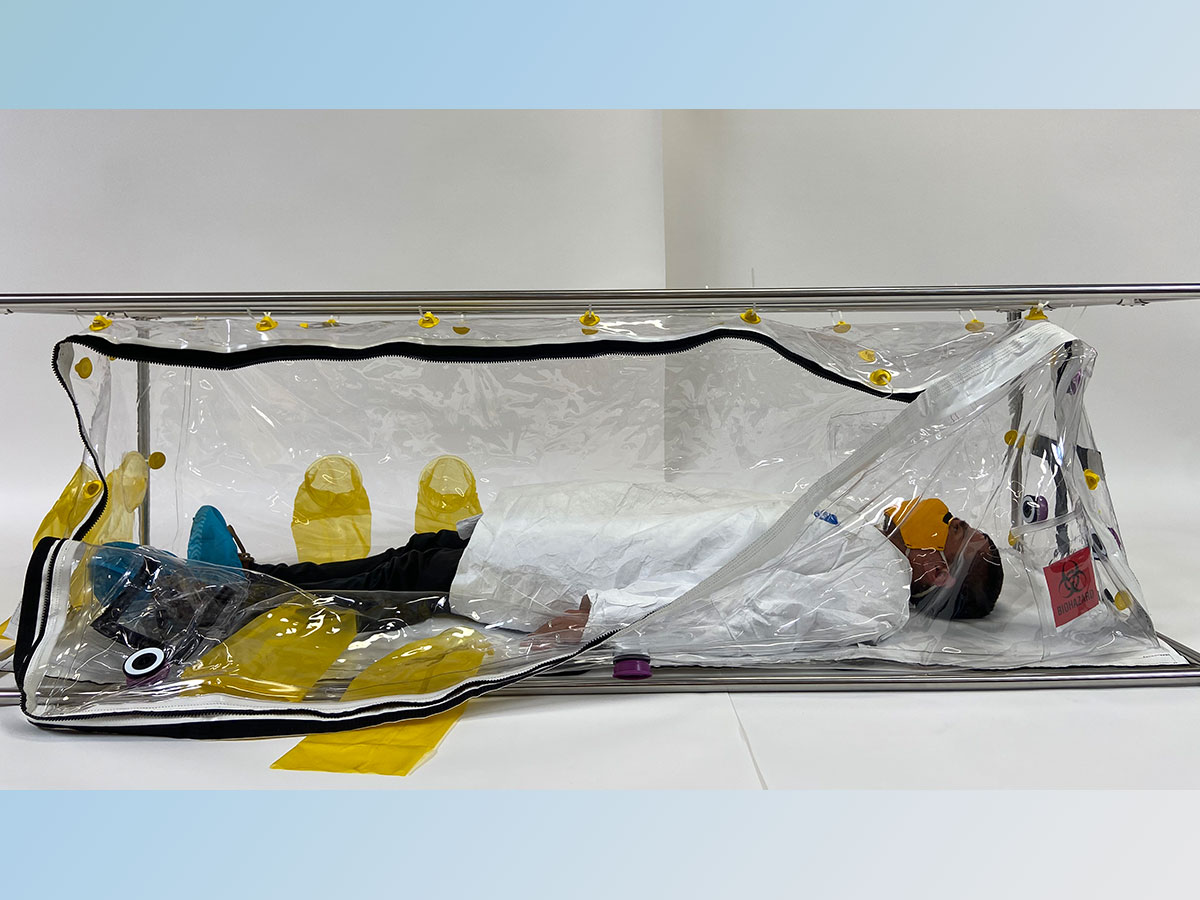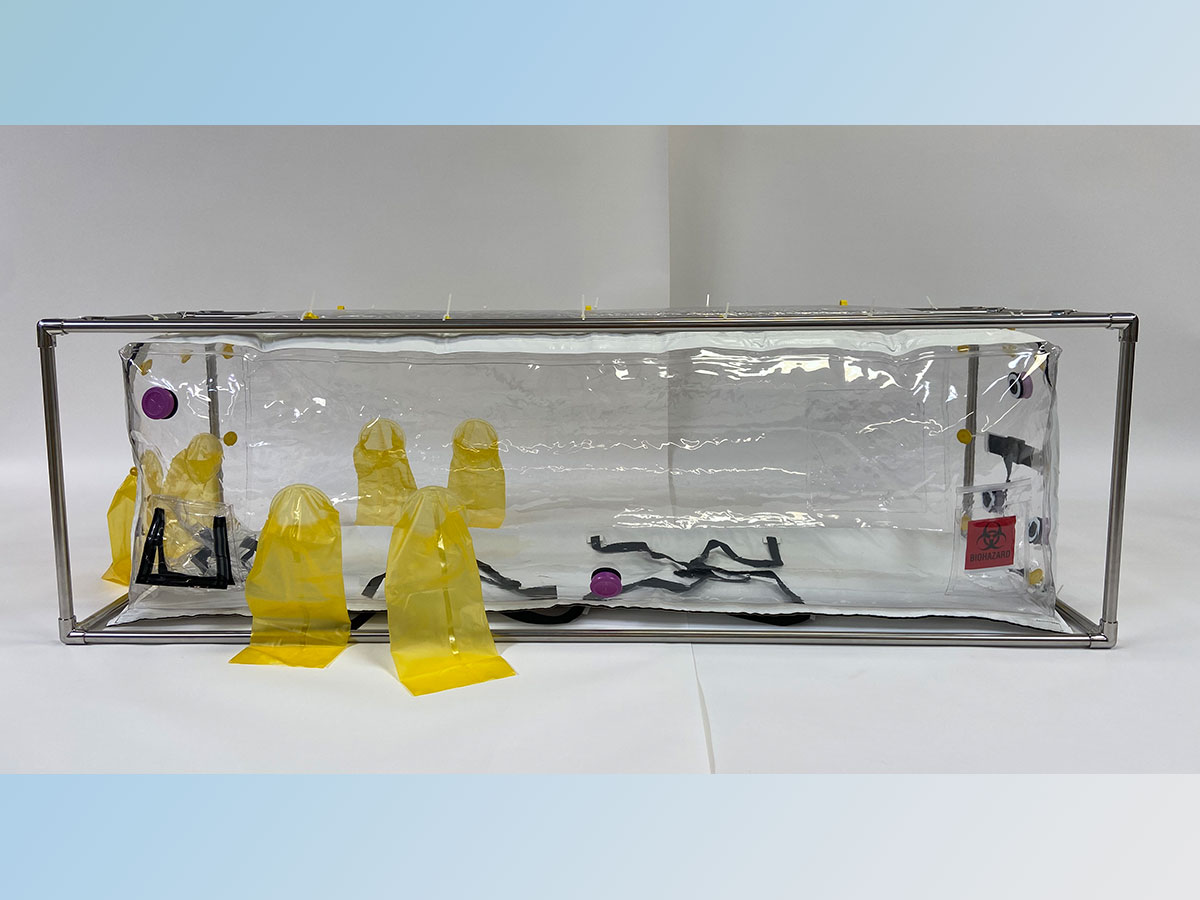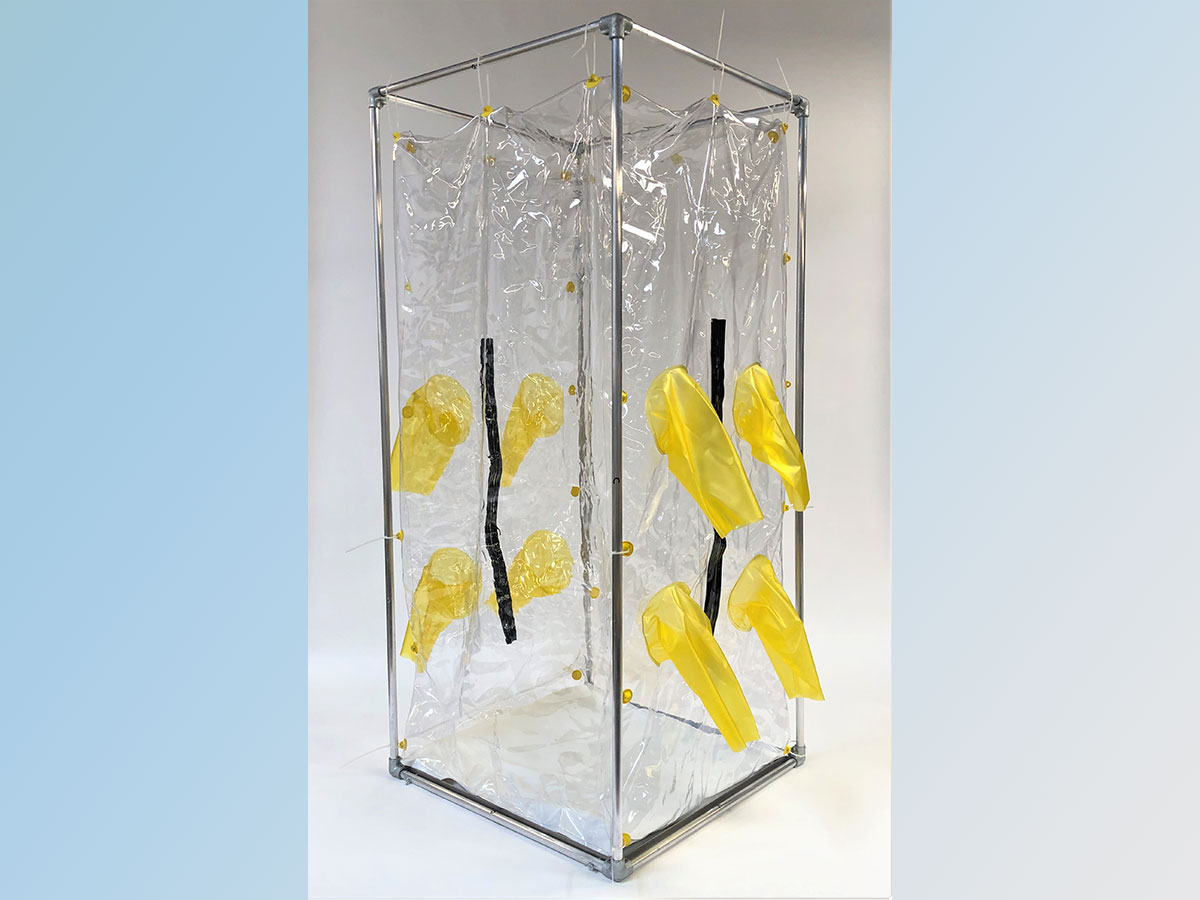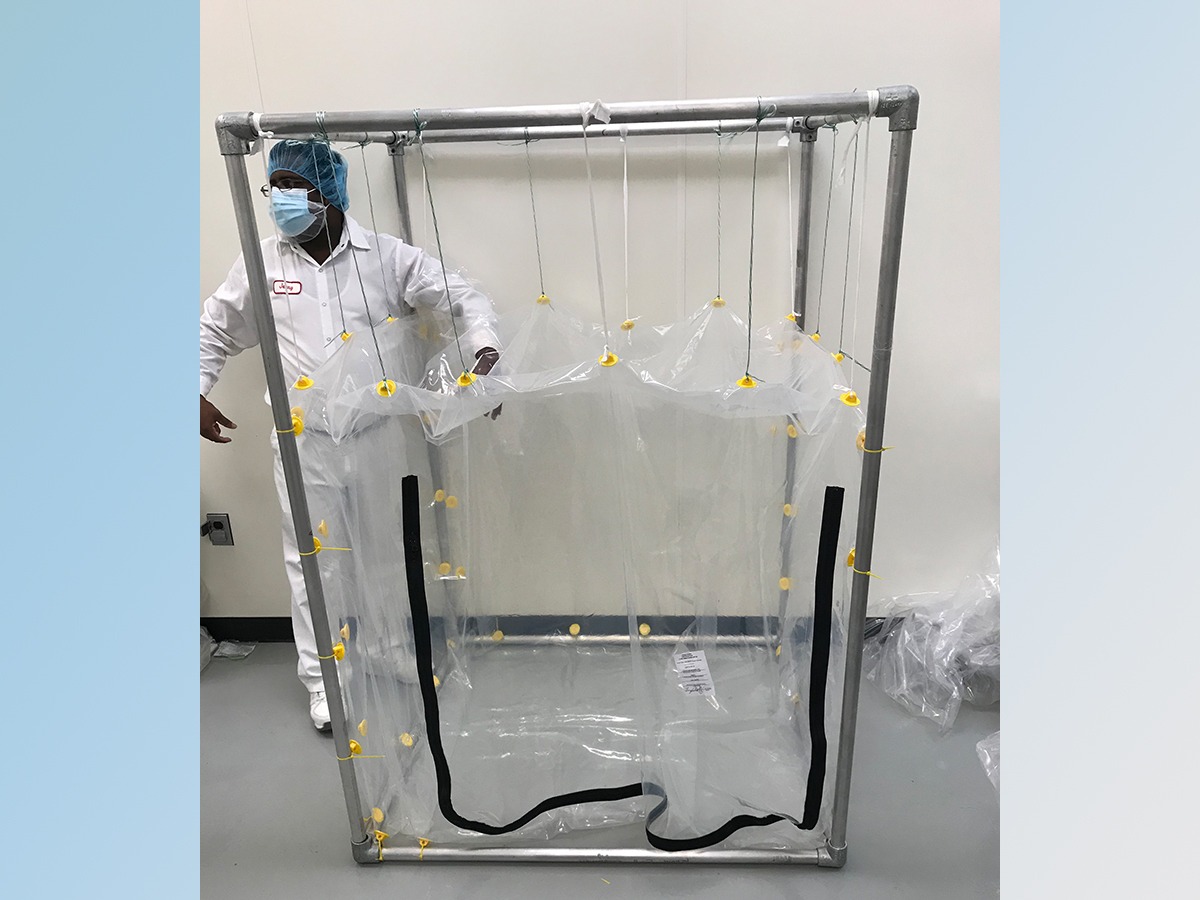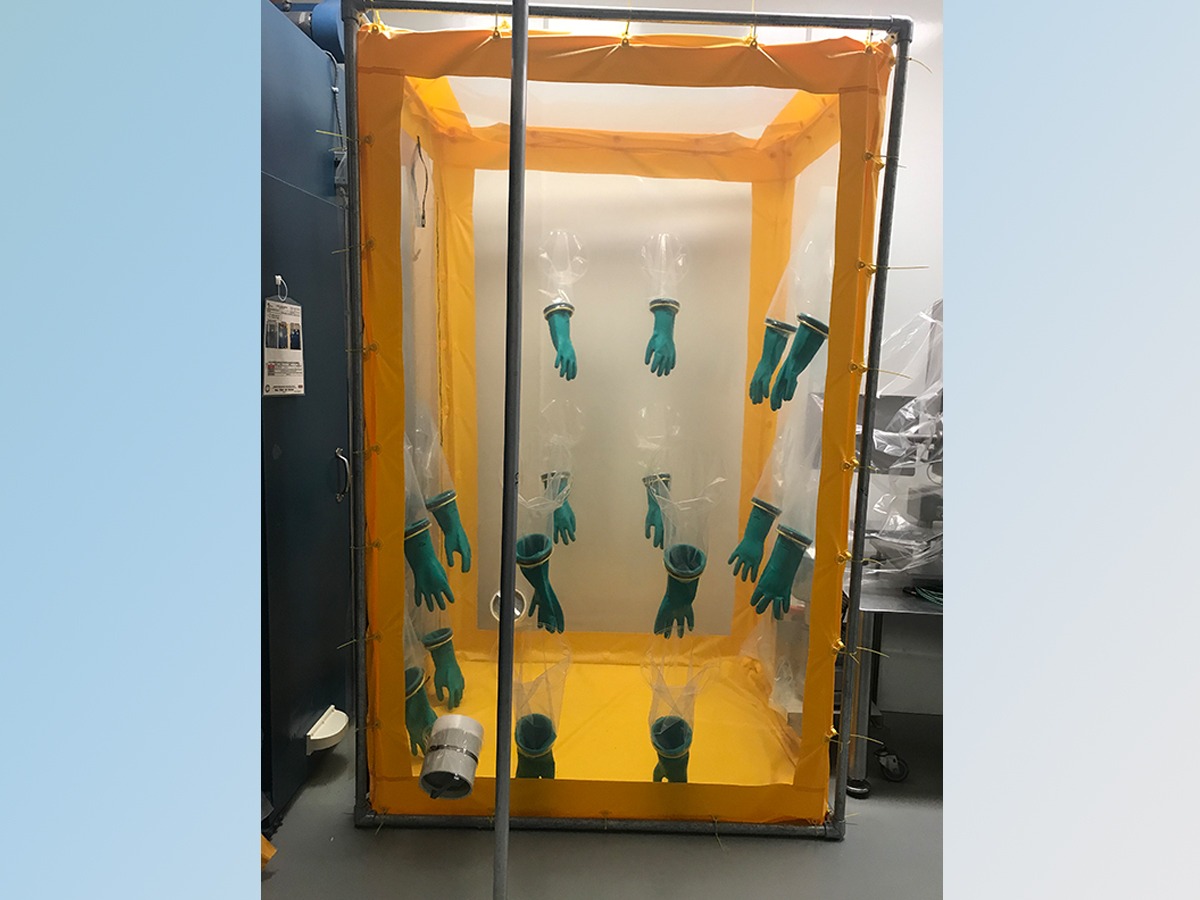Pharmaceutical Containment Isolators for Manufacturing
With 50 years of experience in designing and manufacturing industrial containment products and systems, Lancs Industries develops customized isolator solutions for the unique requirements of your pharmaceutical manufacturing organization.
Pharmaceutical isolators create controlled environments for aseptic and sterile processing, drug formulation, compounding, handling cytotoxic drugs and hazardous substances, and pharmaceutical research.
Our flexible pharmaceutical containment systems and single-use pharmaceutical isolators promote safety product quality and are cost-effective.
Types and Applications of Isolators in Pharmaceuticals
The most common pharmaceutical containment systems are isolators, including Compounding Aseptic Isolators, Compounded Aseptic Containment Isolators, and Restricted Access Barrier Systems (RABS). Many systems are equipped with HEPA and related air filtration systems. All systems are equipped with HEPA filtration.
Containment Isolators
Containment isolators are critical for safe and clean compounding of hazardous, sterile drug preparations. They adhere to all established safety standards for personnel dealing with hazards.
These isolators are often designed with a negatively pressurized system for handling hazardous substances, and air is externally vented from the isolator through a dedicated exhaust.
Flexible pharmaceutical containment systems and non-flexible containment isolators are used to protect healthcare workers who handle highly potent active pharmaceutical ingredients (HPAPIs) that pose health risks. Applications of containment isolators for pharmaceutical manufacturing include high potency drug production and handling, research and development, weighing and dispensing of powders and excipients.
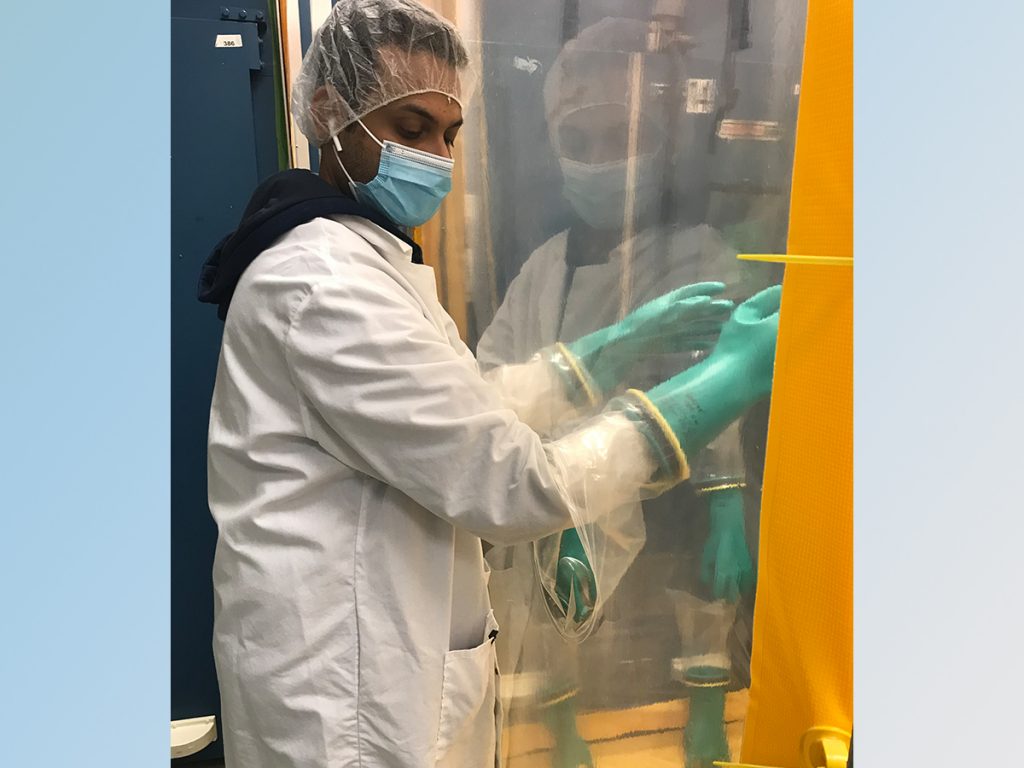
Additional Pharmaceutical Isolators & Key Insights
Aseptic isolators
Aseptic isolators provide an environment for sterile product production and aseptic processes. These isolators are designed with a positively pressurized air system so that the interior is completely isolated from its external environment and from its operators. Suitable for non-hazardous materials, aseptic isolators can perform automated bio-decontamination and continuous environmental monitoring to maintain required conditions.
Restricted Access Barrier Systems (RABS)
Restricted access barrier systems (RABS) are sterile environments for non-sterile and sterile manufacturing. RABS create unidirectional airflow to prevent air overspill inside the barrier, and can either be open or closed. RABS are preferred to cleanrooms in aseptic manufacturing, such as fill-finish, because they offer enhanced separation and minimized contamination risk.
Key Insights
Not all manufacturers or suppliers provide every type of pharmaceutical isolator available on the market. It’s best to contact Lancs Industries to talk to our experts about what is right for your business needs. Contact us today to learn more.
Key Features and Benefits of Pharmaceutical Isolators
Pharmaceutical isolators serve as controlled environments commonly equipped with the following features:
Ergonomic design
Pharmaceutical isolators incorporate ergonomic features such as adjustable glove ports, and user-friendly interfaces for operator comfort and efficiency. Increased operator productivity and reduced human error during sensitive manufacturing processes improves the quality of the pharmaceutical products being developed.
Portability
Isolators can be portable, stationary, or modular. Portability and modular design flexibility enable easy reconfiguration and relocation within a facility, and allow for versatility and adaptability as manufacturing needs change.
Cost-Effectiveness
Pharmaceutical isolators are a cost-effective choice for many pharmaceutical companies because they support efficient spatial utilization and minimize the need for renovations. Additionally, they are generally less expensive to maintain than cleanrooms.
Aseptic Conditions
Isolators create and maintain an aseptic environment by providing an airtight, pressurized, and filtered enclosure that prevents contamination.
Gas sterilization
Isolators may also include sterilization processes that use gasses like hydrogen peroxide vapor or chlorine dioxide to decontaminate materials and surfaces within the enclosure.
Air Filtration
Advanced filtration systems in isolators play a critical role in contamination prevention. Pharmaceutical containments use high-efficiency particulate air (HEPA) filters to ensure that no particles, microorganisms, or other contaminants are present within the enclosure.
Pressure Differentials
Many isolators are designed to operate at positive or negative pressure levels relative to the surrounding environment. Depending on the specific application, isolators create both positive and negative pressure environments to control contamination: positive pressurization keeps contaminants out, while negative pressurization confines contaminants within.
Built to Order
Let's collaborate to determine the best design, shape, and custom features for
your project.
FAQs Related to Pharmaceutical Isolators
Pharmaceutical isolators differ from cleanrooms in several ways. Isolators create an enclosure where the operator is completely separated from the product, while cleanrooms are large environments that personnel operate within. Isolators can be portable and modular, while cleanrooms are stationary and fixed. As such, isolators are usually more space-efficient, cost-effective, and easier to maintain than cleanrooms. Isolators feature advanced airflow and pressurization to control contaminants and stabilize sensitive materials, while cleanrooms primarily rely on air filtration systems. Isolators can also be custom manufactured to meet the particular needs of your unique project.
Pharmaceutical isolators are used for a wide range of drug production processes, including non-hazardous, hazardous, non-sterile, sterile, and aseptic. The type of isolator depends on your requirements. For example, aseptic isolators create a positive pressure-controlled environment for non-hazardous materials, while aseptic containment isolators establish a negative pressure-controlled environment for handling hazardous substances. Lancs Industries develops custom isolators that meet the needs of specific pharmaceutical production processes.
SELECTED HEALTH CARE AND PHARMACEUTICAL CUSTOMERS

Built to Order
Let's collaborate to determine the best design, shape, and custom features for
your project.
